From Entrepreneurs of Chaos into the Leuphana Transformation Lab
18.06.2025
A gemstone of future-oriented interdisciplinary research has recently been presented at Leuphana University. Collecting both practical examples and analytical concepts, the symposium “Entrepreneurs of Chaos” brought together well-known international researchers from Management and Organisation, Cultural Studies, Entrepreneurship, and Philosophy.
Hype around disruption
Organized by Igor Galligo (Leuphana Institute of Culture and Aesthetics of Digital Media) together with Prof. Dr. Elke Schuessler and Prof. Dr. Matthias Wenzel (both Professors for Business Administration, in particular Entrepreneurship and Organization Studies at the Leuphana School for Management and Technology) as well as Prof. Dr Erich Hoerl (Professorship for Media Culture and Media Philosophy), the conference with the subtitle ‚From Disruptive Innovation to Negentropic Entrepreneurship‘ discussed the hype around disruptive entrepreneurship and its potential harmful consequences for existing social and economic ecosystems. It took the concept of ‘creative destruction’ as its starting point and critically discussed its current neoliberal manifestation in the Silicon Valley ideology.
The ambivalent role of entrepreneurs
The aim of the event was to situate the role of entrepreneurship in a time marked by disruption – in particular the contentious role of tech-entrepreneurs like Elon Musk and Peter Thiel. It took place as part of the research initiative “The Disruptive Condition”, led by Prof. Dr. Erich Hoerl, which looks at disruption as a salient socio-historical experience.
It posits that we not only live in times of poly-crises, but that the disruption of established orders has become a dominant logic informing contemporary social and economic practices. The symposium was inspired by the philosopher Bernard Stiegler, whose work highlights the pernicious role of technology in the digital age, but also explores negentropic forces, that is, possible pathways that might lead to the re-establishment of order-producing norms and institutions.
By listening to the presentation from Prof. Dr. Neharika Vohra (Indian Institute of Management Ahmedabad, India) on the first day of the symposium, who explained what happened after call centers and IT services took over the city of Bangalore, one might agree on the destructive side to entrepreneurship. She described how outsourcing the Western service industry for digital client services changed the social, economic, and cultural heritage of the town, increasing inequality and causing local chaos.
Empirical evidence it is
Coming from management research and being part of the prestigious LOST group, Prof. Dr. Elke Schuessler added a demand for evidence to the discussion: “I found it very inspiring to hear how philosophers critically analyze phenomena that we in management research examine empirically and reflect on, albeit often from a different perspective. Personally, I sometimes missed an exchange based on empirical evidence - how do we move from a fundamental criticism of certain forms of entrepreneurship to a differentiated picture, especially with regard to the potential to develop ‘contributory forms of entrepreneurship’? How can we find a common language to constructively bring together concepts and empirical evidence?”
“Why don’t you show emotions?”
Leuphana University offers insights into and supports a wide range of different forms of entrepreneurship. Especially in the School of Management and Technology, social, sustainable and responsible forms of entrepreneurship are investigated and discussed in the classroom.
Moreover, several projects, workshops, or seminars are offered to encourage students to think about entrepreneurial solutions that will not generate profit for one person but will help solve humanitarian and environmental issues.
Maybe unsurprisingly, some of the most critical questions during the symposium were raised by Leuphana students:
“Why don't you show any emotion when you talk about destructive dynamics? And why do you present key indicators like ‘number of unicorns in a region’ if you want to criticize the underlying concepts?”
Dialogue across hemispheres
The question of evidence also remains vital for the representatives of Philosophy and Cultural Studies. As Prof. Hoerl concluded: “It has become clear how important local knowledge from the so-called Global South is for the search for alternatives, for instance counter-disruptive models. Against this backdrop, it is worth further intensifying interdisciplinary dialogue across the hemispheres.”
The Leuphana Transformation Lab
The upcoming Leuphana Transformation Lab is the perfect place to continue these discussions. The Lab brings together five key subject areas in an interfaculty collaboration that explores key areas of disruptive change and transformation: Organizing in Times of Crisis, Digital Futures in Digital Cultures, Democratic Resilience, Companies as Drivers of Sustainability Transformations, and Toward a Regenerative Society.
Hence, the event can be seen as a bridge between entrepreneurship research already conducted at the School of Management and Technology and the upcoming research agenda on transformation. Projects like “STEP” that enable people mostly in the Global South to rise out of their poverty, “STEP Sustainability” which focuses on sustainable entrepreneurship, and “ScaleF”, supporting the empowerment of female founders are already focusing on social transformation.
Counterbalancing the mainstream
As Matthias Wenzel says: “Entrepreneurship research is by no means blind to the destructive dynamics. Especially in recent research, increasingly differentiated insights are emerging that reveal dysfunctional patterns such as the ones witnessed in Silicon Valley. This research is extremely important to counterbalance the mainstream of entrepreneurship research, which continues to emphasize the North American ideal.”
In the recent symposium, participants presented conceptual work as well as case studies from Europe, India and Africa, which were discussed as both local manifestations of disruptive innovation as well as alternatives to disruptive entrepreneurship.
A place of exchange and necessary clashes
This shall be continued in the Leuphana Transformation Lab - a place of exchange and maybe also some scientific “clashes”.
Prof. Erich Hoerl has encountered those during the symposium and is eager to further investigate – for example the difficulty of reaching a shared understanding of the role of critique informed by philosophical inquiry and the misapprehension that philosophical reflection is remote from real-world problematics.
Prof. Elke Schuessler and Prof. Matthias Wenzel from the Leuphana School of Management and Technology agree and look forward to further “constructive conflicts”.
Anyhow, everyone is encouraged to dive deeper into the role of entrepreneurship in transforming future society – hopefully for the benefit of all.
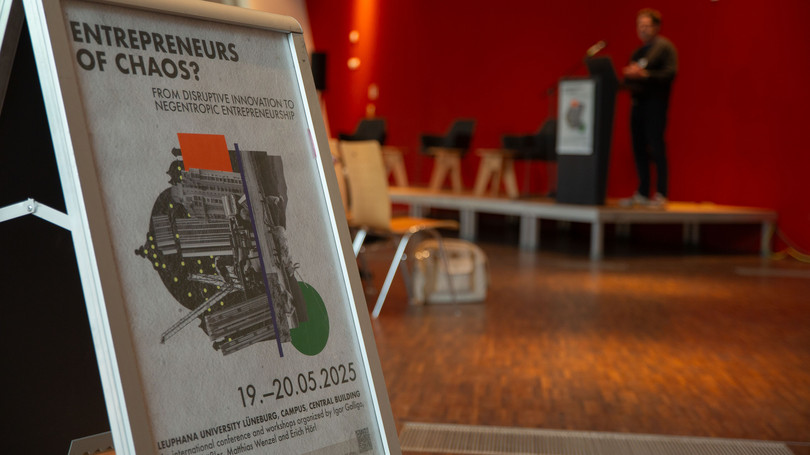 ©Leuphana/Phillip Bachmann
©Leuphana/Phillip Bachmann
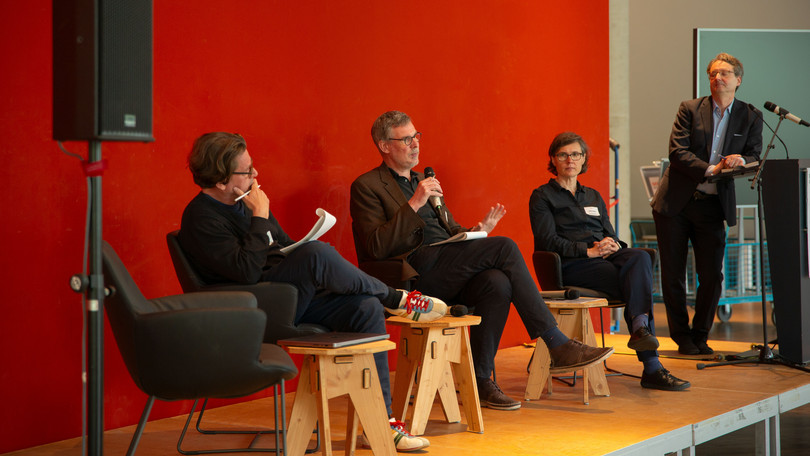 ©Leuphana/Phillip Bachmann
©Leuphana/Phillip Bachmann
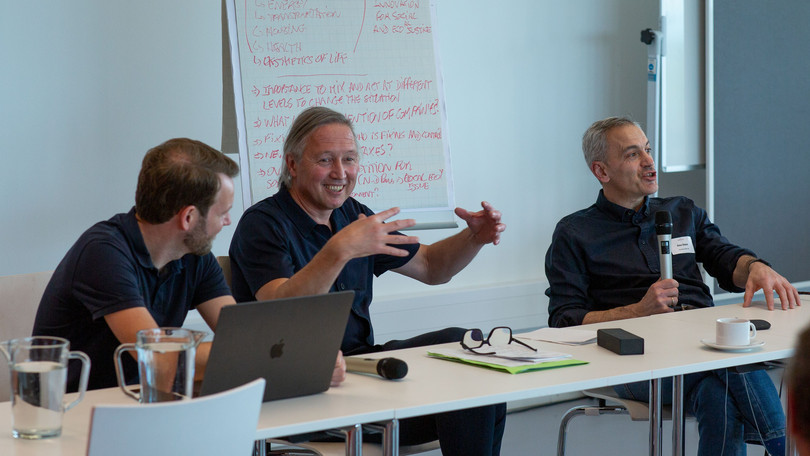 ©Leuphana/Phillip Bachmann
©Leuphana/Phillip Bachmann
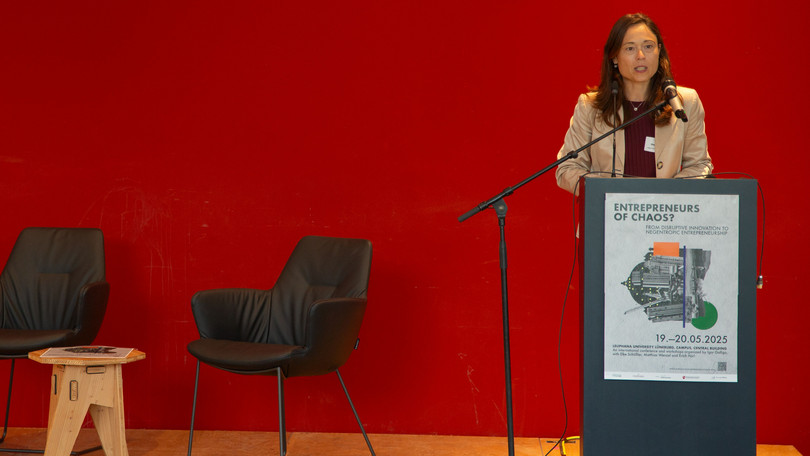 ©Leuphana/Phillip Bachmann
©Leuphana/Phillip Bachmann
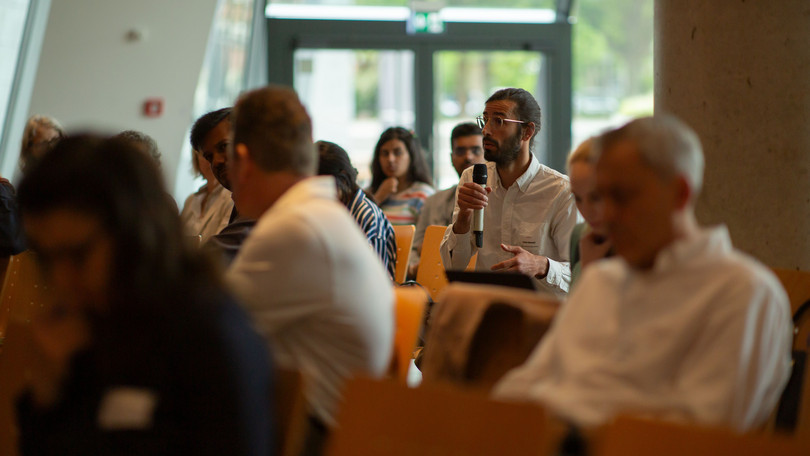 ©Leuphana/Phillip Bachmann
©Leuphana/Phillip Bachmann
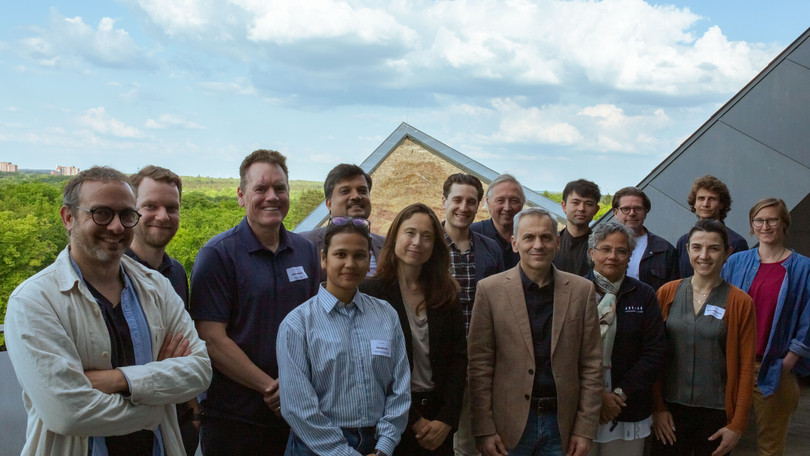 ©Leuphana/Phillip Bachmann
©Leuphana/Phillip Bachmann
